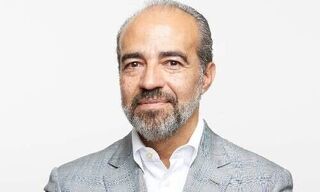The U.S. wealth management arm of UBS has undergone several major changes recently, giving new life to rumors that the Swiss bank is preparing a sale of the unit. A former UBS banker explains the logic behind.
UBS bought the former Paine Webber brokerage in 2000 for $12,5 billion, and it forms the basis of the Swiss bank's U.S. wealth management activities.
But the U.S. brokerage has never been a completely natural fit for the Zurich-based wealth manager: U.S. brokers are paid a portion of what they earn their firm in revenue, unlike in Europe, for example. And UBS' stockbrokers in the U.S. cater to clients who would typically be thought of as retail elsewhere in the world.
Asked whether it is preparing a sale of the U.S. unit, a spokeswoman for UBS said nothing has changed from last July, when Chief Executive Sergio Ermotti gave a robust defense of the brokerage and denied that the bank plans to sell.
Sale Speculation Persists
Nevertheless, sale speculation persists, due in part to two sweeping changes UBS has made in the U.S. which one analyst says could indicate that the bank is rethinking its no-sale stance.
First, the bank installed its financial chief, Tom Naratil, at the helm of its U.S. brokerage at the beginning of this year. Then, last week, UBS said it would ease recruiting efforts while introducing a new compensation scheme. The pay program is aimed at ending the expensive «musical chairs» poaching of brokers from one wirehouse to another, a hallmark of the brokerage industry.
Private Bank and Brokerage Mismatch
UBS could very well decide to sell the U.S. business while the going is good, Alois Pirker, an analyst with Aite Group and former UBS banker, told finews.asia. As shown by Microsoft's acquisition of LinkedIn last week, valuations are high and interest rates are low.
«Is UBS willing to sell? I don't know, but I feel that very much anything is possible at this point,» Pirker said.
The brokerage industry isn't as financially attractive as private banking, where margins are higher and advisers aren't typically entitled to a share of fees. The industry also faces a slew of regulation which is expected to increasing spending, as well as more efficient trading players which will thin broker margins and reduce their revenue.
Potential Acquirers
UBS has strategically positioned itself in the middle between major houses like Morgan Stanley, which employs more than 15,000 brokers, and smaller regional players like Stifel, a minnow in comparison.
Its strength is a top-fleet adviser force, which would be an attractive proposition to foreign entrants seeking to break into the U.S. market, or for smaller players with the firepower to bulk up.
Potential acquirers include Raymond James and Royal Bank of Canada, which acquired «banker to the stars» City National in January of last year, he said.
Private Bank and Brokerage Mismatch
The U.S. brokerage has always been managed independently of UBS' wider private bank, the largest in the world. Efforts to converge the two business models – closely watched by European competitors with a similar conundrum like Deutsche Bank and until recently, Credit Suisse – have foundered.
«That mismatch of business models is still there: retail brokerage is changing because of regulation, and on other hand you have high-end private banking. You can't talk away that mismatch,» Pirker says.
Tax Benefits
It is unsurprising that UBS' revived brokerage is considered an attractive asset following a successful restructuring and return to considerable profit under Robert McCann, its previous head and a leader renowned for fostering intense loyalties among its brokers.
Whether UBS ultimately decides to sell probably has less to do with the financial and strategic logic of getting out of the U.S. brokerage business, and more with a complicated system of tax credits it still books as a result of massive losses and the bank's near-collapse during the 2008-09 financial crisis.
As Ermotti put it last year, «almost every dollar we earn in pre-tax profit across our businesses in U.S. is available to distribute to shareholders,» as the bank continues to make use of deferred tax assets to smooth its profits.

























